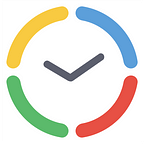Many of us are experiencing problems with staying focused throughout the day. Sometimes it’s just not that easy: multitasking, distracting behavior of colleagues, social media, and physical discomfort, like low light or noise at the workplace, often cost us valuable work hours and prevent us from accomplishing more.
Who’s to blame?
We tend to blame external factors for impairing our focus and concentration. In a way it makes sense: too many distractions and too many tasks make it hard to concentrate on something. However, we shouldn’t discount the physical and psychological aspects that can impair our ability to focus just as much.
External factors that lead to the loss of focus are mostly related to a poor organization at the workplace, poor workplace conditions, and chaotic environment. Having to tackle several tasks at a time, spending too much time on unimportant communications, and working in a noisy room hurt our ability to concentrate.
Physical factors that affect our attention are tiredness and low energy, and both caused for the most part by the lack of sleep and poor nutrition. Some of the office employees who face concentration problems also report experiencing constant fatigue and stress: they just don’t have time to take a break. This results in attention deficit and a dramatic decrease in productivity.
The main psychological factor that affects our concentration is the lack of the habit to stay focused. According to the experts, the brain of an average office employee is trained to be unfocused: in a multitasking environment, our mind adapts to change the focus of attention every few minutes. Which ultimately works against us: we end up unable to retain our attention on a task even when the deadline is near.
What’s the solution?
Improving our ability to focus is not as difficult as it may seem. Changing the distracting environment is often not an option, but what we can do is work on our physical condition and attitude. So take a look at these simple recommendations: they are worth following.
First, improve your nutrition and sleep habits. A healthy diet and at least seven hours of sleep reduce fatigue and improve brain function. Catch up on lost sleep on the weekends, and you’ll notice after a while that you don’t get stressed and tired as easily as before.
Next, plan your day ahead. Put your to-dos on paper and check what is done throughout the day. Try using reminders and scheduling apps; they can be a great help when dealing with forgetfulness and disorganization.
Another practical advice: start the day with getting something done — even at home, not at your desk. William McRaven, a retired US Navy Admiral, points out the importance of making the bed every morning: you accomplish the first task of your day, and it encourages you to beat laziness during the rest of the day and do more.
Get rid of all major distractions. Consider using software tools like site blockers and inbox cleaners to help you overcome your social media addiction and reduce email clutter.
Prioritize your tasks wisely and schedule your time in such a way that nothing slips out of your mind. Psychologists recommend doing creative tasks first, as they require more focus than routine to-dos. Contrary to popular belief, multitasking doesn’t really work that well: science say that it can take up to 50% more time when you are trying to complete two or more tasks at once.
Block out non-essential communications, both verbal and written, and concentrate on your high-priority tasks. Establishing a communication hierarchy within the team will definitely help set up clear boundaries between what’s important and what’s not.
For long-term positive effects, experts suggest training the brain as a muscle. Try staying concentrated longer and practice focusing when you don’t really need to — for example, read a book in a noisy environment or drive without the radio on.
Track your time to identify your biggest time wasters and focus on more important activities. Timesheet software is a good solution for that: record your time expenses, review your daily, weekly, monthly etc. statistics, and analyze your progress.
If you are a manager, keep your team focused too. A clear work process with a breakdown structure can help increase personal responsibility and improve attention of each employee. Use special software tools to assign projects to your teams to keep track of their progress and results.
Summary
Improving your ability to concentrate is certainly not an easy task, but it’s not an impossible one either. The biggest obstacle for most of us is our lack of motivation, but with a little bit of effort and with the assistance of a couple of useful software tools it won’t be long before you see some positive results. Granted, the steps covered above are fairly basic, but they can be a great first step towards regaining your focus.
